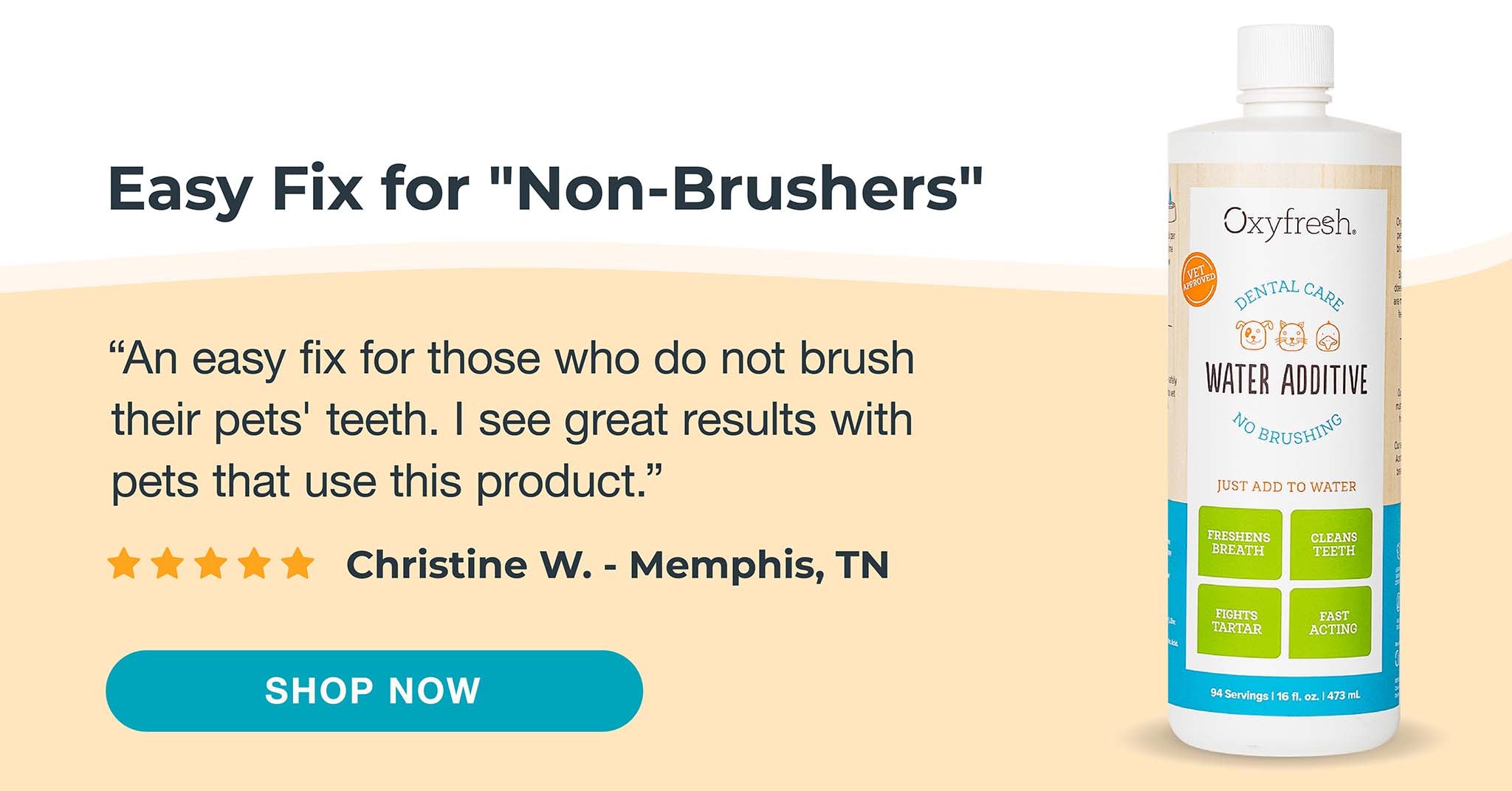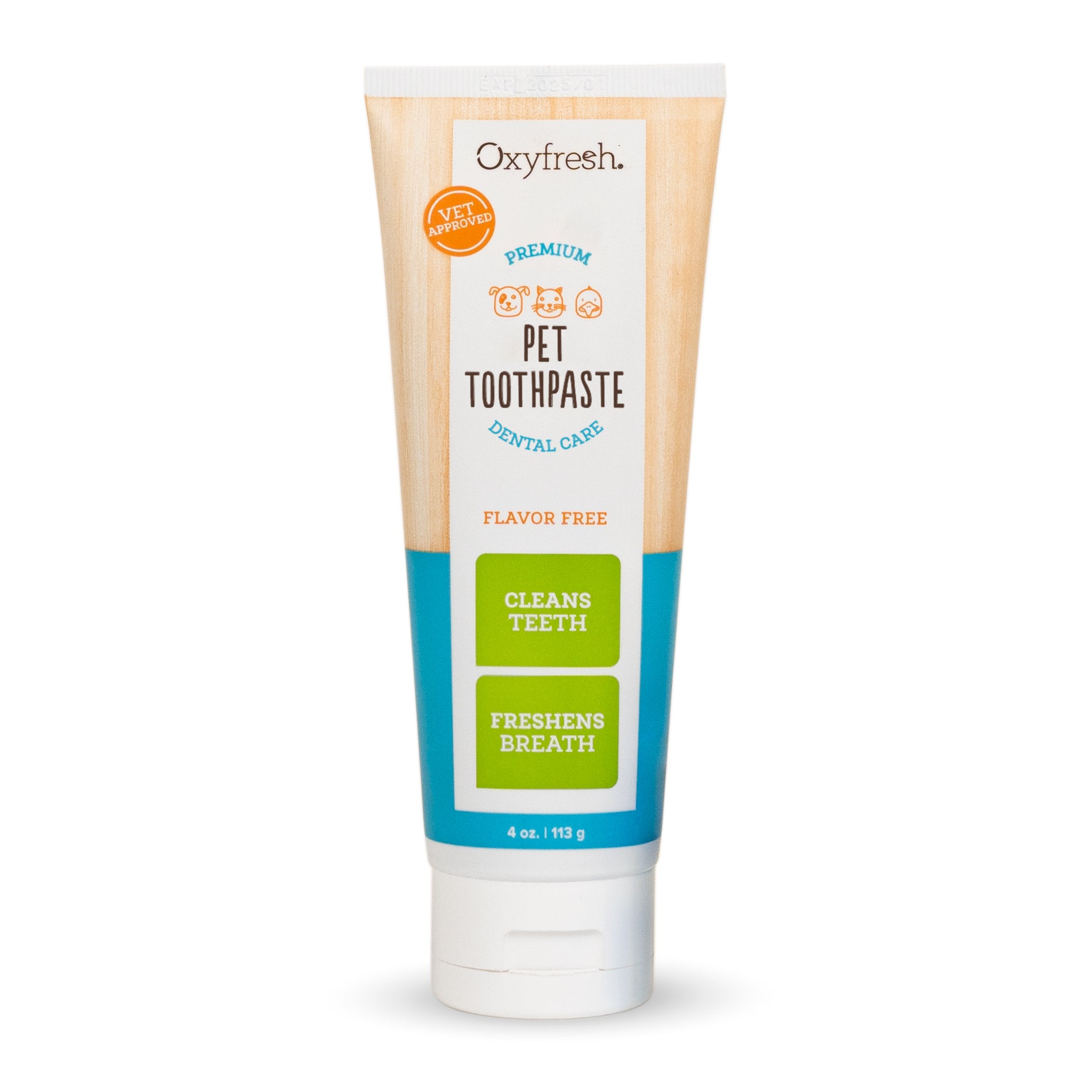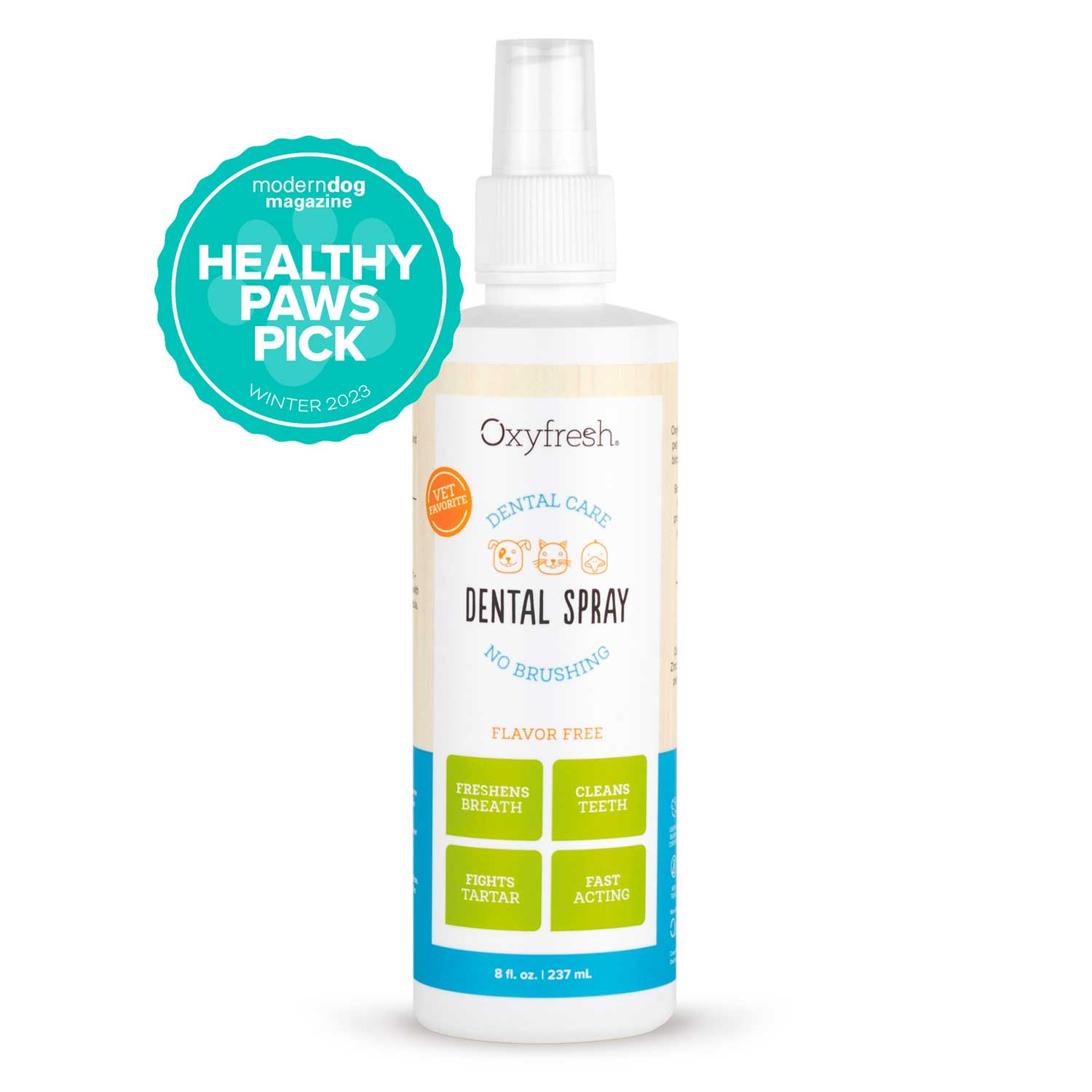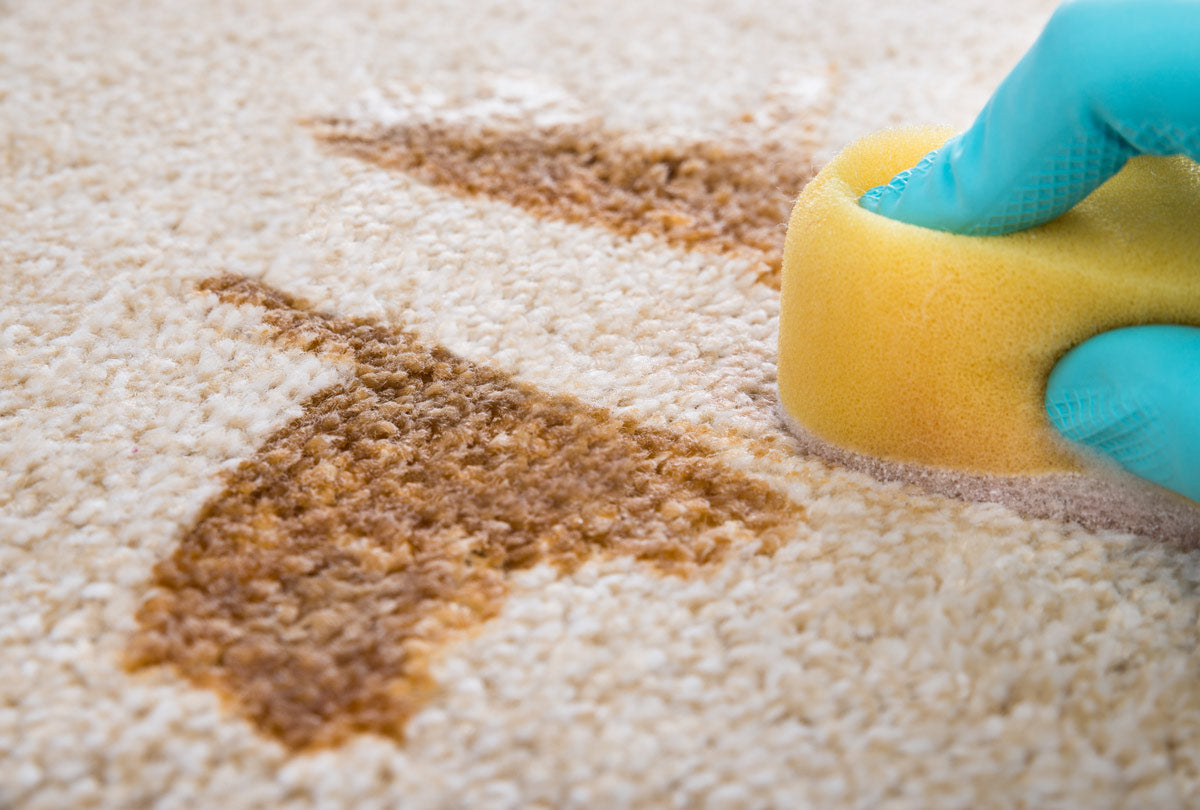Between wiping up water off the floor (hello, messy drinkers!) to long walks and belly rubs, pet parenting is busy enough. To free up their time and energy, many dog parents are intrigued by dental wipes for their pups’ oral care.
But are dog dental wipes too good to be true? Read on for the pros and cons of dental wipes for dogs, what to look for in a wipe, and the ultimate dental routine if you decide wipes aren’t for you.
Pros of Dental Wipes for Dogs
- Popular with the seniors: Despite the saying, sometimes it IS hard to teach an old dog new tricks. For senior dogs who don’t take kindly to a toothbrush, dental wipes are a popular alternative to help keep their teeth clean.
- Easy to use: Especially for small dogs, dental wipes are much easier to maneuver around in the mouth compared to a dog toothbrush with a handle. This can make for a convenient daily dental routine that takes mere seconds.
- Quick plaque remover post-meal: Using a dental wipe in your dog’s mouth after meals is a fantastic way to help control plaque buildup. Plaque is a gummy substance that forms after a dog eats. When plaque combines with salts and minerals in dog saliva, it begins to harden into tartar. Tartar is a yellow-brown substance that forms along the gumline, especially on the back molars. Tartar needs to be professionally removed if it builds up. Less plaque = less tartar = happier wallet and heathier dog. Swipe it across your furry pal’s teeth and gums post-meal and you’ll be sooo satisfied seeing all the gross stuff that comes off.
Cons of Dental Wipes for Dogs
- Not as effective: Compared to brushing your dog’s teeth (the gold standard of dog dental care), dental wipes don’t have the same cleaning power and can’t get to the nooks and crannies of the teeth like a dog toothbrush or finger toothbrush can. That’s why dental wipes are often used as a supplement to toothbrushing.
- Not eco-friendly: Because dental wipes are disposable, if you’re conscious of your environmental paw-print, you may want an earth-friendlier option for your dog’s daily dental care.
- They can dry out: Just like cleaning wipes you use around the house, nothing is worse than reaching for a wipe only to find that it’s completely dried out. If you use dental wipes for dogs, make sure the package is closed tightly and you use them on a regular basis.
- Slip n’ slide: Some dental wipes, especially the ones that slip on over the finger, can slide around in the pup’s mouth. And if your pooch is a real tongue-wiggler, watch out! Some pet parents have reported that their dogs swallow the wipes. (Gulp.)
What if my dog HATES having their mouth touched?
If your dog is truly a don’t-touch-my-mouth-or-I’ll-bite-your-fingers type, dental wipes are not going to be your best option for home dental care. Like a dog toothbrush or finger toothbrush, they require you to handle your dog’s mouth and put your fingers inside their mouth. In this scenario, your best bet for daily pet dental care is going to be a dental water additive, as it’s completely hands-off.
Just make sure to choose an unflavored water additive so that your picky pooch won’t detect it in their water bowl. Our recommendation? Oxyfresh Water Additive. It’s USA-made, has ZERO flavors and is the #1 water additive on the market. Vets, pets and pet parents LOVE IT.
What to Avoid When Shopping for Dental Wipes for Dogs
If you embark down the path of dog dental wipes, be sure to look at ingredient lists and read the reviews. The biggest complaint with many dental wipes for dogs is that the pet hates the taste or gets an upset stomach. (Safe to say, we’ve all cleaned up enough messes in our lifetimes.)
Flavored dental wipes
Most dogs do not like the taste of mint, and when the wipes are formulated with ingredients like spearmint oil or peppermint oil, it can make this kind of dental routine challenging. You don’t want your dog running away, biting your fingers or wrestling with you every time you come at them with a dental wipe.
Peppermint oil especially can be hard for dogs to tolerate, as it’s much stronger with a higher menthol content versus spearmint. (Menthol gives that minty-burn feeling).
Other natural ingredients like thyme oil, with its strong herbaceous scent, can make dogs turn their noses up at the dental wipe.
Plus, when you choose a flavor-free wipe, you’ll know if the product is truly benefiting your dog’s oral health. You don’t want to just cover up bad dog breath temporarily with a mint, vanilla or herby smell. You want a product that tackles plaque- and bad-breath-causing bacteria directly. (Bad breath is usually the first sign of gum disease, which 90% of dogs have in some form by age two.)
Keep your eye on the dyes?
Dyes don’t serve a purpose other than to change the color of something. (Pretty sure dogs don’t care what color their dental wipes are.) And if the goal is white, clean dog teefers, who wants dyes rubbed all over their mouths? So if you give two paws down to artificial dyes like us and try to avoid these substances, look for a dye-free dental wipe.
Hit pause on Polysorbate 80
Polysorbate 80 is a synthetic compound that’s used as an emulsifier, surfactant, or stabilizer to keep ingredients from separating. Polysorbate 80 can be toxic to dogs in high doses, causing vomiting and diarrhea. In sensitive dogs, polysorbate 80 can cause an upset stomach or digestive problems when consumed in smaller amounts. Because the ingredients from the wipe are swallowed by the dog (spitting is not a trick they know), we advise avoiding dental wipes for dogs with polysorbate 80.
Is baking soda bad for dogs?
Sodium bicarbonate, aka baking soda, is bad for dogs’ stomachs. It can lead to vomiting or diarrhea, and in large amounts, it can even be toxic. In addition, if you’ve ever given your pooch a dog toothpaste with baking soda, blech! Most dogs can’t stand the taste of baking soda. (We can relate.) Our advice is to use this kitchen staple for baking and deodorizing and not as an ingredient in your dog’s dental wipes.
Frequently Asked Questions About Dog Dental Wipes
Will dental wipes help to freshen my dog's breath?
Yes, especially when used after meals. Wiping away smelly food particles and sticky plaque that breeds bacteria will help to keep your fur baby’s breath in check.
How often do I need to use dental wipes on my dog's teeth?
If you only wipe your dog’s teeth and gums on occasion, the wipes will have no effect on their oral health. You’ll want to use the doggie dental wipes every day, unless they’re a supplement to another kind of routine, like toothbrushing.
How can I get my dog on board with dental wipes?
Always keep any kind of dog dental experience positive. Let your dog examine and sniff the wipe before you go for their mouth. Calmly praise them and give a treat afterward, even if it didn’t go well. This will build a positive association with the wipes.
Can I use human dental wipes on my pup?
Nope! You can share your innermost thoughts and your plate of chicken with your dog, but don’t share any human dental products. Certain ingredients that are fine for us can make dogs sick.
Can dental wipes take the place of dog toothbrushing?
Can and should are key distinctions. While any dental care is better than no dental care, it’s best to use wipes as a supplement to brushing. A good routine would be brushing 3x a week and then using dental wipes on the off-days.
Ultimate Dog Dental Routine
If you like the no-fuss aspect of dog dental wipes but aren’t quite sure if they’re right for your pup, we invite you to try the ultimutt dog dental routine with Oxyfresh’s all-in-one Pet Dental Kit. You get the best of all worlds: the convenience of a water additive (just add to water bowl) plus a dog toothpaste and finger toothbrushes to give your furball the most pristine kind of clean for their teeth and gums. Here’s what’s inside:
- Oxyfresh Dog Toothpaste: Only Oxyfresh dog dental products are formulated with Oxygene®, a safe, non-toxic purifier that targets the bacteria that cause bad dog breath and plaque right at the source. No suspect ingredients, no baking soda, and no coverups with weird mint, green tea or poultry flavors. Old dogs, small dogs, young pups ... they all love this dog toothpaste!
- Oxyfresh Water Additive: This vet-recommended, USA-made water additive makes for an easy dental routine, just like dental wipes. The big difference? It’s completely hands-off! Simply add to dog’s water bowl and you’re good to go! Because it’s tasteless and odorless, even the pickiest pooches won’t be able to detect it. Best of all, it’s powered by Oxygene® and zinc to provide essential protection against plaque and bad breath with every drink of water.
- 3 soft silicone finger toothbrushes: This is the alternative to bulky dog toothbrushes with a handle. You just slip a brush on over your finger and brush your dog’s teeth along the gumline. The gentle bristles will stimulate and pamper the gums and clear away plaque in those hard-to-reach spots. They’re reusable and dishwasher safe too, making them an earth-friendlier option versus disposable dental wipes.
Try this Pet Dental Kit as a top-dog dental routine or use in conjunction with dental wipes. Either way, your pup will thank you!










